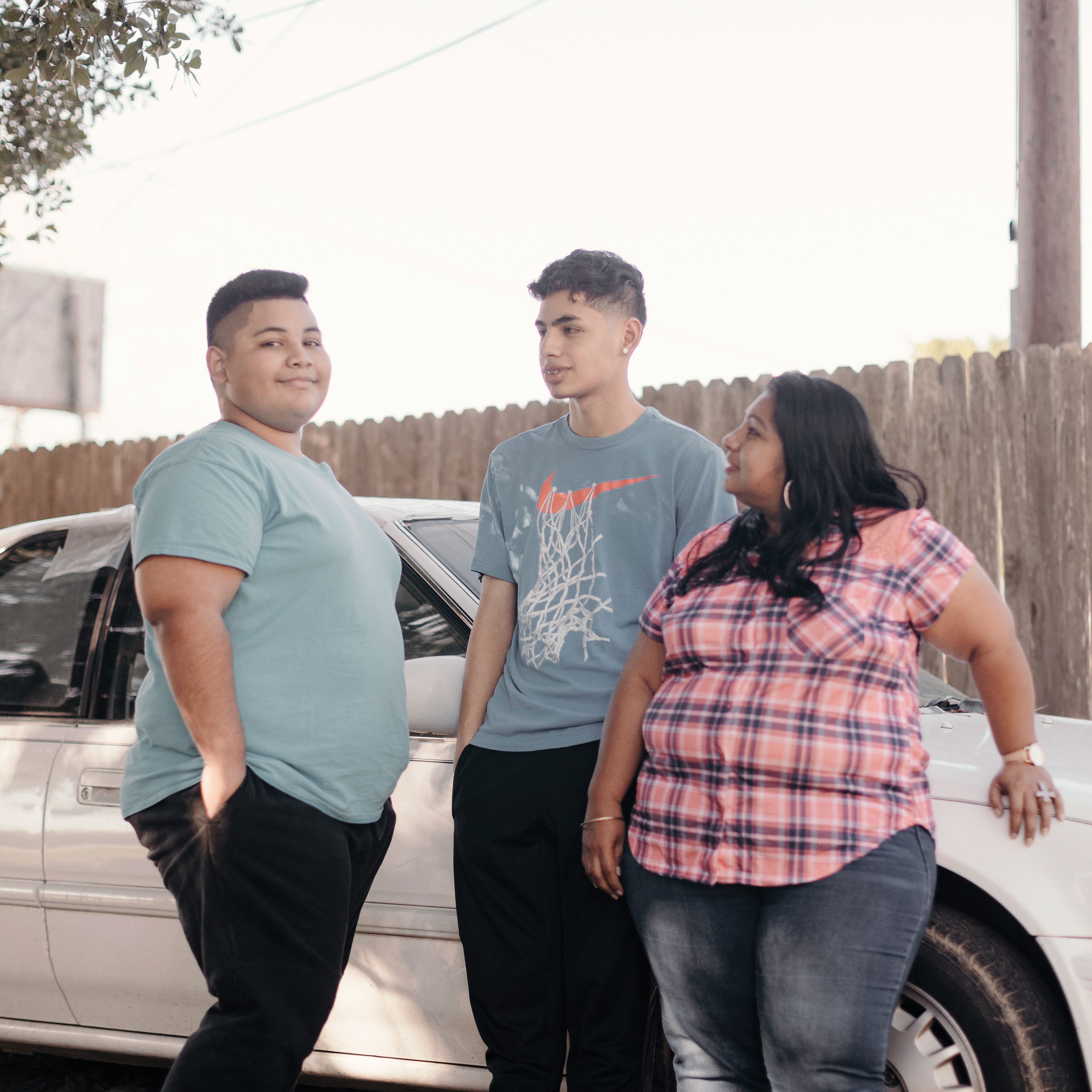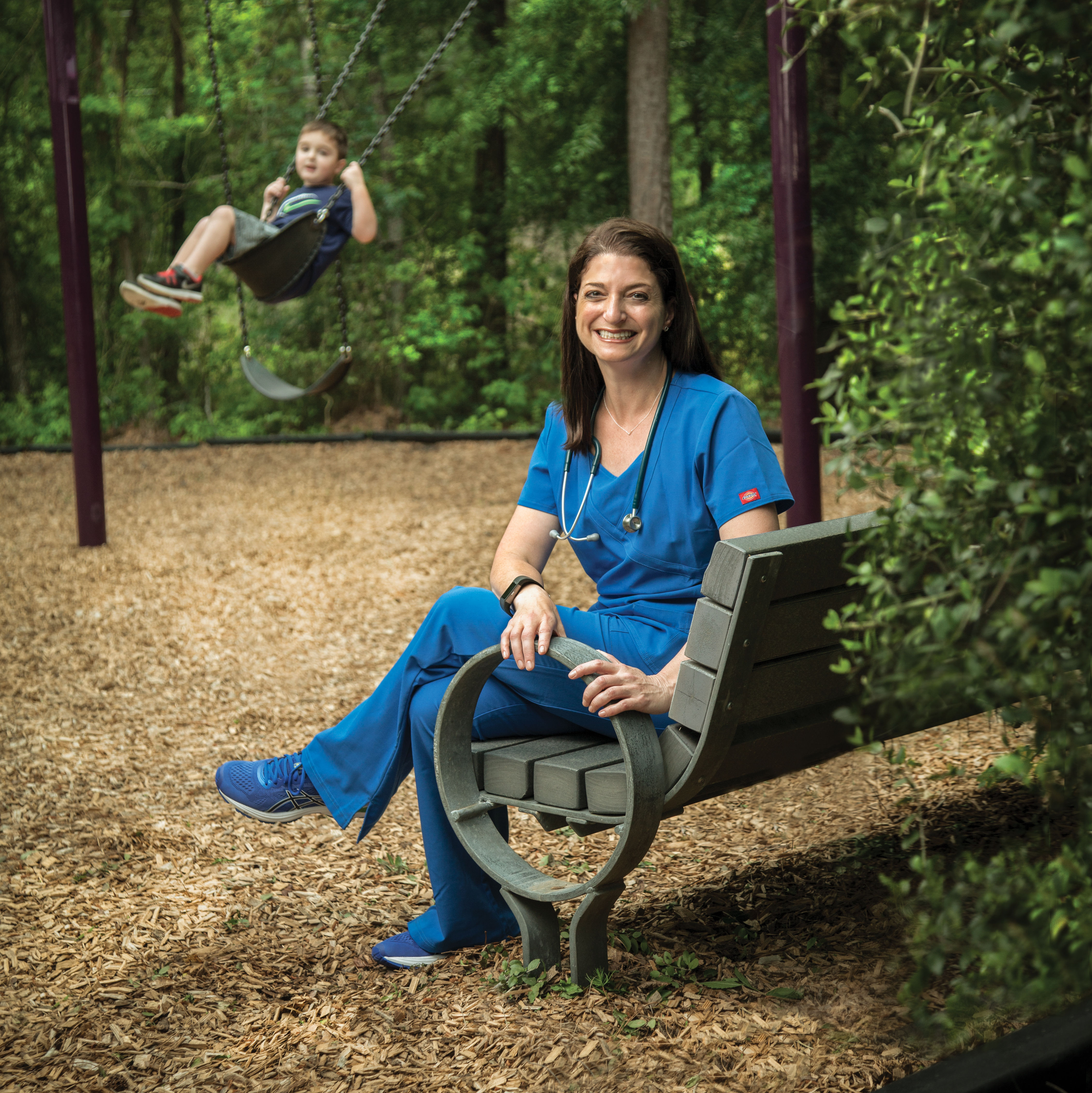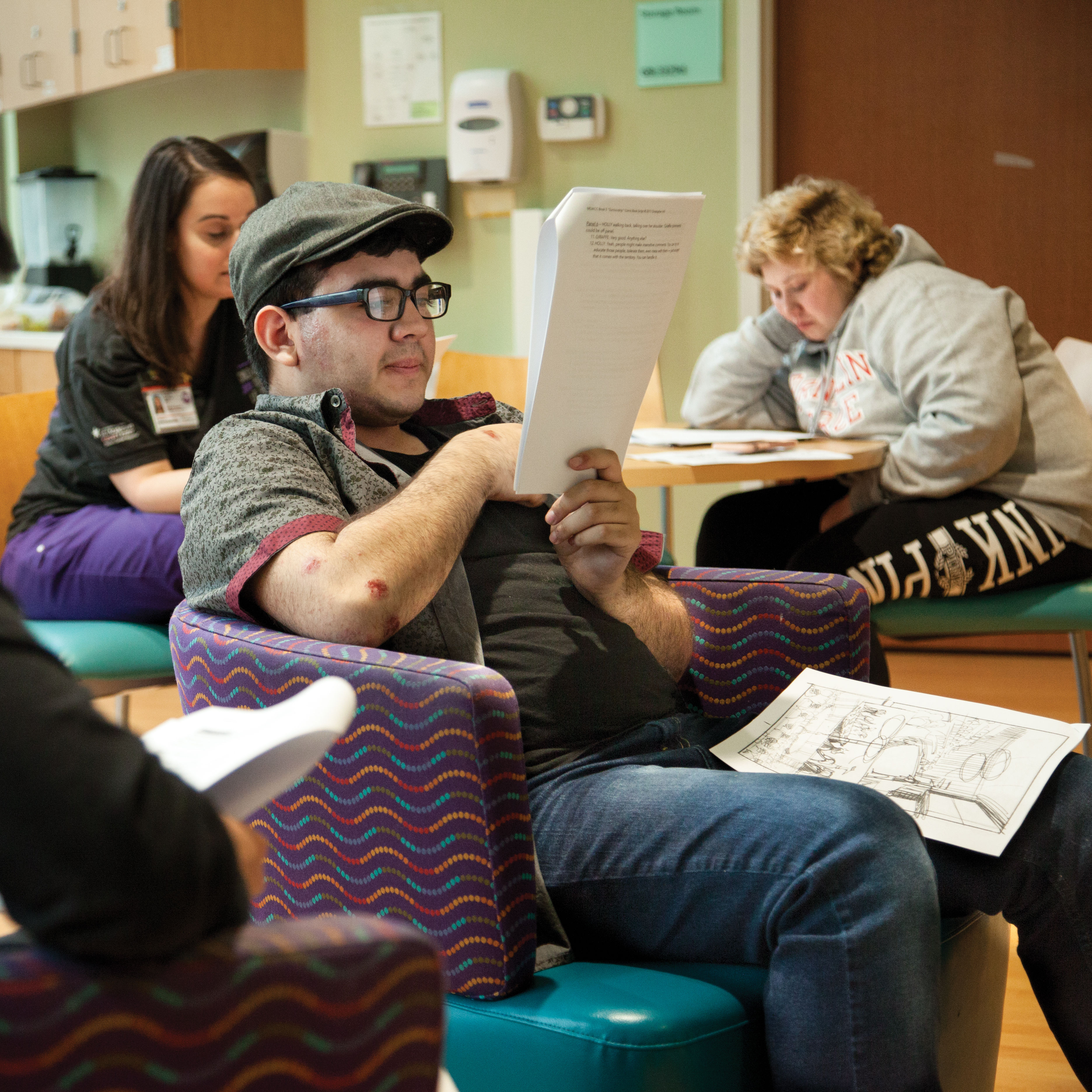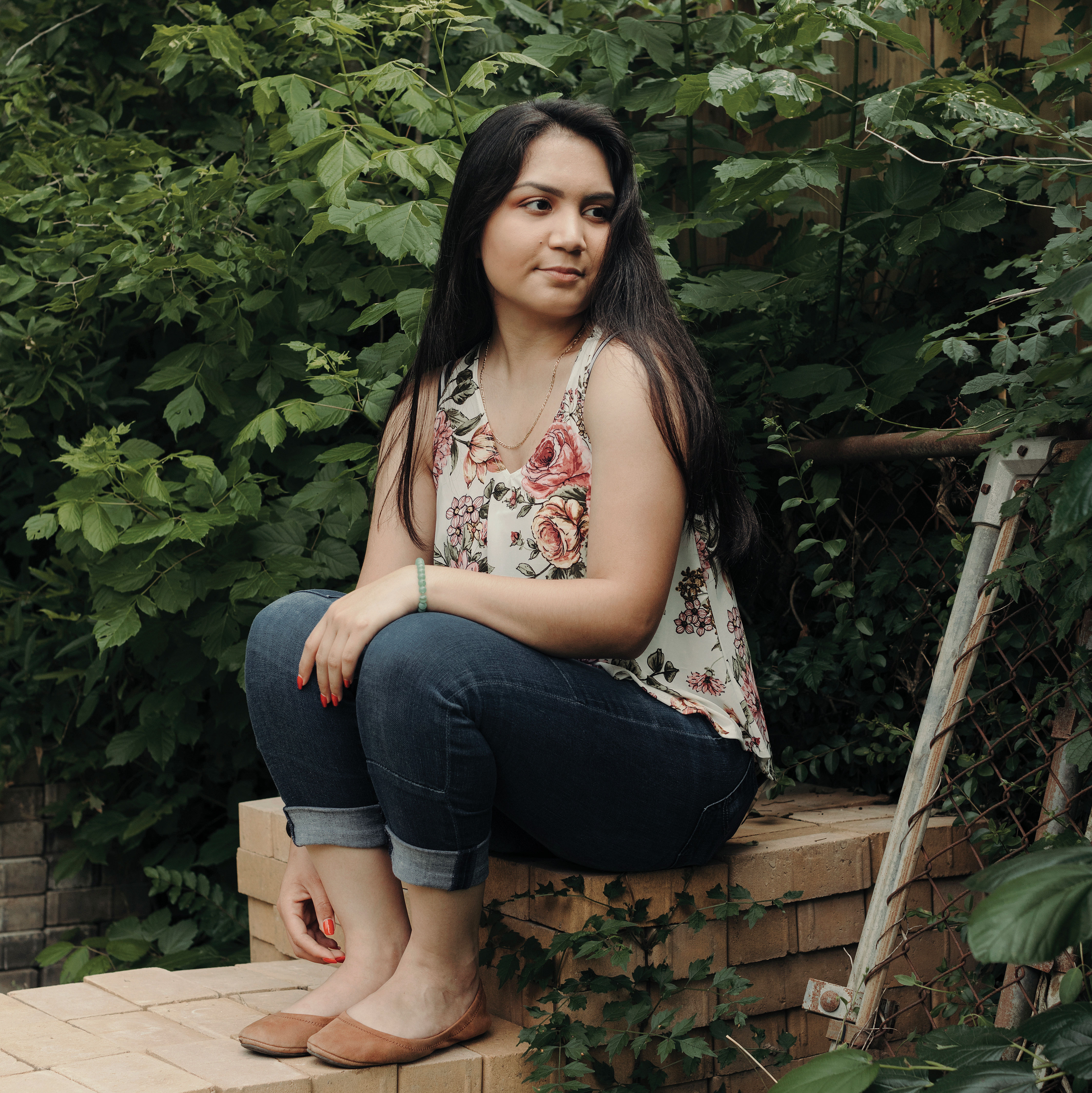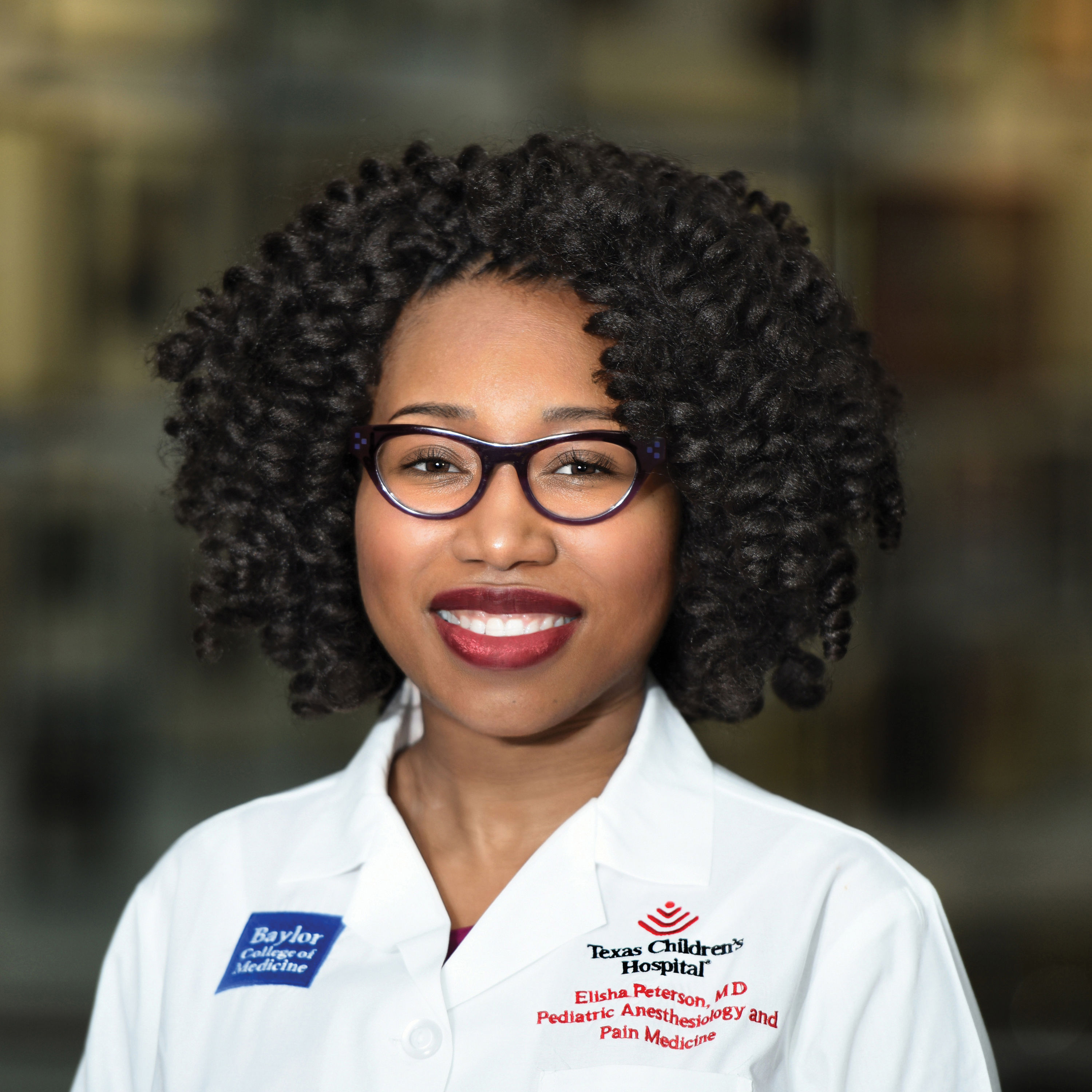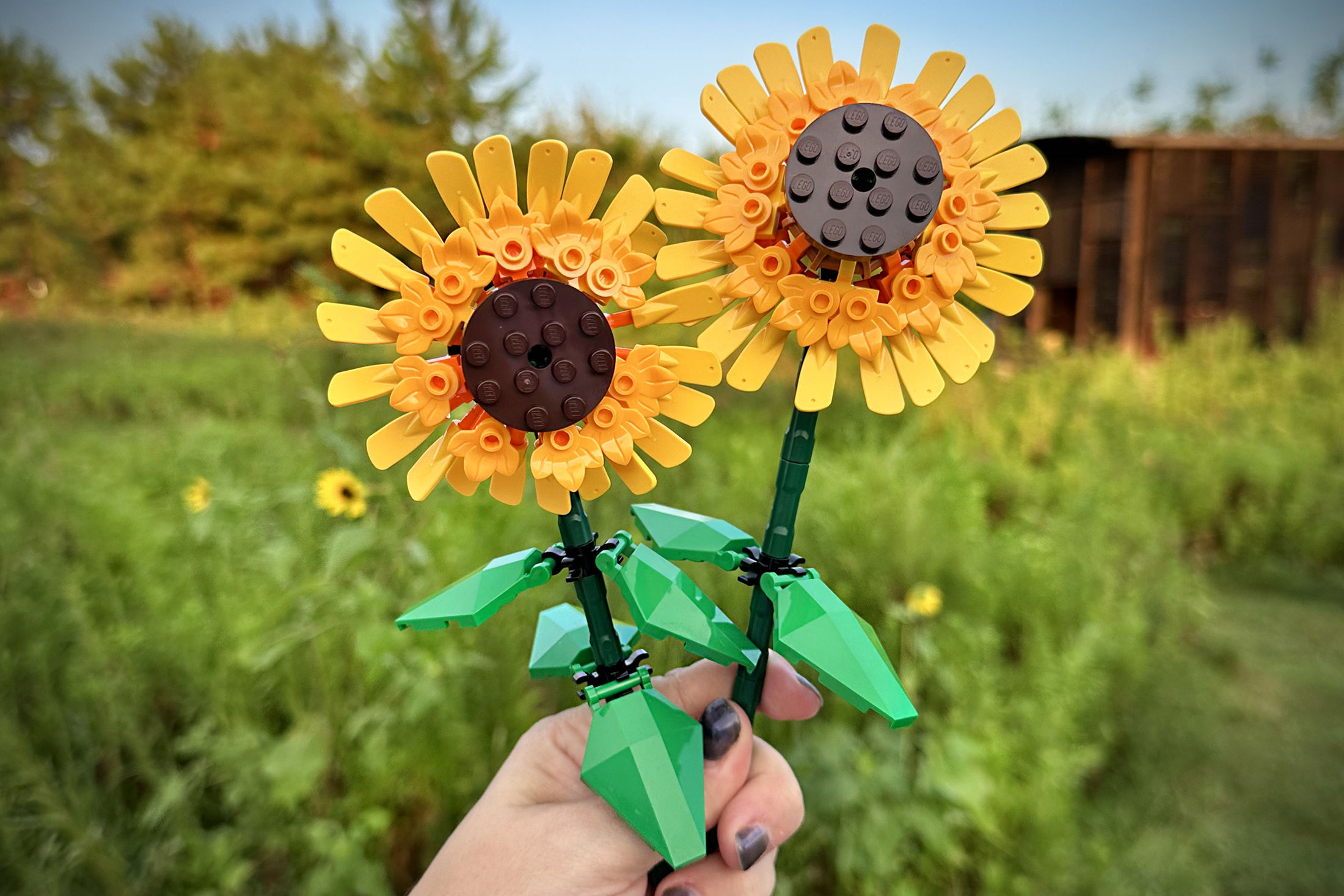Parent to Parent: Two Moms Talk Bringing Up Daughters With Dyslexia

Image: Christopher Vela
WHEN HOURS OF HOMEWORK TURNED INTO TEMPER TANTRUMS AND TEARS, mothers Paula Munson and Kristin Mayfield knew something wasn’t clicking with their bright, young daughters.
Both Munson and Mayfield are mothers to daughters with dyslexia and learning differences, but in different stages of life. At 22, Paula’s oldest, Sarah, is a scholarship student at the University of St. Thomas. Her youngest, Kate, is a 16-year-old hurdle runner and stage manager at the Briarwood School, which caters to children with learning differences, and to which the Munsons credit their daughters’ success. Mayfield is just starting to understand how her eight-year-old daughter, Annalise, who’s fresh off a diagnosis and heading into third grade at Briarwood, learns best. The two moms sat down to discuss their experiences with dyslexia and advice for parenting through it.
Kristin Mayfield: Annalise is perceptive and a big-picture thinker, which I think is a strength for a lot of dyslexic kids. But her diagnosis has changed the way she feels like she fits in. What advice do you have for coaching a daughter through that?
Paula Munson: Both of my daughters had some of those same issues. The biggest thing is to always draw on their strengths. It doesn’t have to be academic things, because that’s probably not going to be the case. It is hard. They instinctively can tell who the smart kids are, who the athletic kids are, who the different kid is. You don’t have to tell kids. They figure it out on their own. You just have to try to keep bringing out their strengths. They might be a really good listener and problem solver and that is important, especially with girls as they get older. That can be a strength. Sometimes you just have to point that out.
KM: Those definitely are some of Annalise’s strengths.
PM: I also found that my girls did better one-on-one or just with two or three friends instead of a big group. Birthday parties may be smaller. You can have a couple of get-togethers rather than one big party. If you’re confident in a small group, your overall confidence will improve. They get more confident too as they become successful. That may take some time, it’s not just overnight.
KM: Were you working behind the scenes, or did you have conversations with the girls to boost their confidence?
PM: I did both. We do a lot of “pre-talking” about what a situation might be like. You can’t plan every single situation, but it gives them ideas so they feel comfortable. My older daughter was in cotillion and had to call parents to make an RSVP. She was very nervous, so we practiced and called each other on cell phones. The funniest thing is she won an award for the best RSVP. That was such a silly thing, but it made her feel more confident. Even today we joke, “Well, you’re the best RSVP-er.”
KM: This is jumping ahead, but I already have anxiety about college. What is that process like?
PM: Some colleges embrace learning differences more than others. Some schools, like Texas Tech and the University of Arizona, have additional programs that you have to apply to. You often have to pay an additional fee, but they offer tremendous services.
Sarah is not at one of those schools. Sarah needed to be closer to home and didn’t want to go to a big school, so our choices were limited. She has done well at St. Thomas, but she has had to fend for herself. They have the writing center and tutoring center, and she has certainly utilized that, but it wasn’t geared just toward her. [My husband] Tom and I have been some of her support, and tutors have helped along the way.
Kate wants to spread her wings a little more. But because of that, we know she is going to need to be in one of the more intensive programs. There were a lot of sleepless, anxiety-driven nights with Sarah completing papers and things that don’t come easy for dyslexic students. They learn to compensate and improve, but it is still hard even when they are further along than your daughter is now.
KM: What about for standardized testing?
PM: We learned a lot along the way. A neighborhood friend of Sarah’s asked her to do test prep with her, and we figured we might as well have her do that. It was a disaster. It didn’t work to Sarah’s strengths and she wasn’t very successful on her first go-round. But we learned from that. We then used a company that did one-on-one tutoring, and it made a huge difference. She also was fortunate that some colleges let you “super-score” your tests. This means that if you got a good score on English and math and the next time you do great on science, they keep the highest scores. All kids can do this, but not all schools accept it. It might be something to ask.
For Kate, we use a tutoring service that focuses on students with learning disabilities that is all on Skype. It has been very good for Kate. The other thing is that instead of taking it cold and gleaning information from it, Kate never took the test before she had tutoring. Her first scores started off pretty good. She didn’t have a confidence struggle. I wish we could have done that for Sarah, too.
KM: At Briarwood, teachers work with your kids, but later in life you have to advocate for yourself. How have you taught your girls to do that?
PM: Again, we talked about it and we practiced it a little bit. For Sarah, we encouraged her to introduce herself to her professors, and let the teacher get to know her. Once they do, they realize she is not slacking, she is working hard. That’s the biggest key, letting people know you and not being afraid.
KM: In our family, my daughter has learning differences and my son doesn’t. I find she needs me more, and I spend most of my time with her. How do you juggle your time?
PM: We had so many nights with tears, where we were just working away, and you feel like all they do is homework. We got tutors a few nights a week, because after a while, the girls didn’t like me anymore. I was always the bad guy making them do homework. Tom and I took turns, too. He traveled a lot for a while, but he would Skype in, or they would send him problems because he is the math person. Briarwood has a rule that after 20 minutes, if you’re still stuck, you should cut it off. You should take advantage of that. Sometimes you just have to.
Otherwise, I probably wasn’t that great at carving out time for myself, but every now and then you need to have a date night or a night out with friends.
KM: Is it important to have female friends who you can relate to?
PM: Oh yes, definitely. I didn’t always have that, but that has been a real blessing. Sometimes you feel like you are the only one where everything is such a struggle. The neighborhood friends are getting their homework started at 7 p.m., and they’re in bed at 8 p.m., and they are going to baseball practice before that, and you’re like, “Oh my gosh, we have been doing homework this whole time.”
KM: What are you the proudest of in Sarah and Kate?
PM: They have overcome a lot of things, and they took advantage of all that there was to offer and made the most of it. They really bought in and trusted the process, and believed, “I can do it.” You think at the beginning, “How are they going to function?” and they do. They succeed and flourish and do great things.
What about Annalise?
KM: She has had so much perseverance. The little kids at Briarwood talk about having grit. Right now, her favorite movie is The Sound of Music. She wrote a persuasive paragraph about it and it said, “You should like The Sound of Music because Maria has grit. Grit is important.” She just gets it.




